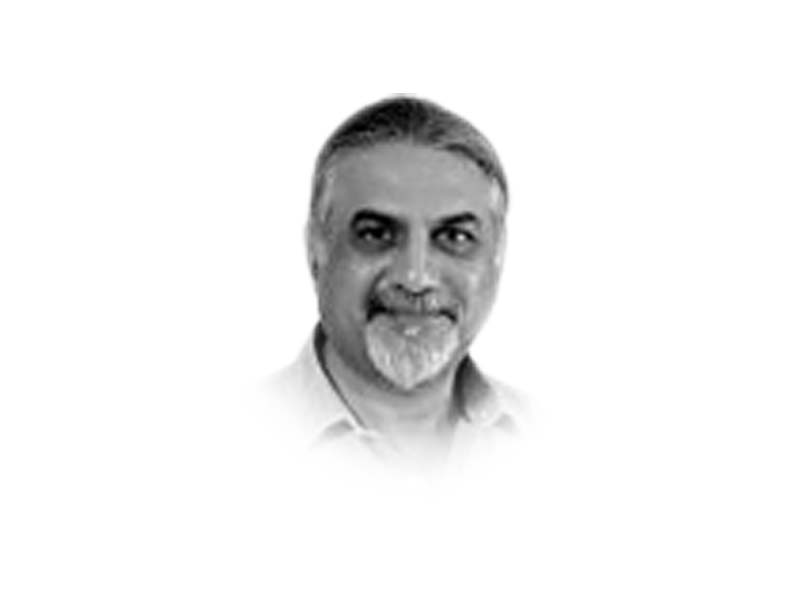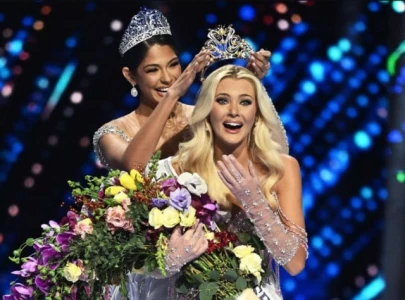
I was inclined to write again this week on the Ukrainian crisis but given the speedy developments that are taking place in politics in the country one cannot stay away and ignore them. So, I may end up writing about a mix of both the worlds. For me, today both Ukraine and Pakistan have one thing in common. It clearly seems that a deliberate attempt is being made to execute a regime change in Pakistan much in line with how it was tried for over one decade in Ukraine and which finally culminated in year 2014.
The crisis in Ukraine has a long history but it really gathered storm after its democratically elected President, Victor Yanukovych, was overthrown in a February 2014 mass uprising which was termed a coup by President Putin. Put simply, the pro-Russian regime of President Yanukovych had backed out three months earlier (Nov 2013) from the EU agreement and instead agreed to Moscow’s rescue plan. The consequent rising protests in the country were declared by Putin as attempts by the West to execute regime change in Ukraine. Something similar is happening in Pakistan today.
West-sponsored regime change has a history. Prime Minister Mohammad Mosaddegh of Iran who stood up against the western interests and nationalised his oil industry was removed from power in 1953 by the US-sponsored coup which brought in the regime of Reza Shah Pahlavi who would maintain a pro-western foreign policy till he was finally removed by an Iranian revolution in 1979. Even post-Arab spring, the US looked the other way when Hosni Mubarak of Egypt, its strategic partner of over 30 years, got in trouble.
PM Imran Khan’s visit to Russia and his government’s clear stand on how it wants the country to no more take sides or be part of any particular bloc has also landed him in trouble. His clear and explicit stand on how Pakistan will not provide the US with any military base turned the Biden administration away from him; and when Pakistan abstained during the UN General Assembly voting on Ukraine, it for the first time gave a clear signal to the world that it is finally saying goodbye to a long cold war and even the post-cold war association with the US.
The impetus gained by the opposition’s no-confidence motion against PM Imran’s government and now the current call for protests by the opposition is reminiscent of how regime changes have been executed by the US in the past in the countries that are unsupportive, including Ukraine under President Victor Yanukovych.
One must not forget what forced the US and EU to increase their assistance to Ukraine. In 2013, Kyrgyzstan closed the Manas US Air Base in its country after Putin pledged and offered a $2 billion support to the country. This action by President Putin is said to have convinced President Obama to give up on his policy of reset of relations with Russia which he had been executing for a couple of years. It is after this event that President Obama abandoned missile defence talks with Russia, imposed sanctions on its leadership and cancelled a summit with President Putin that was supposed to be held the same year.
All those western scholars who criticise President Putin by saying that he is blind-sighted by the logic of realism which holds little sense in 21st century must know that liberal principles such as rule of law, liberal democracy, human rights and economic interdependence are the gifts of the US world order of liberal internationalism that have continental application and growth. Major parts of Africa, Asia and even Latin America have not benefited much from these principles and that is why we live in two very different and unequal worlds. A rising world being led by the likes of President Putin and President Xi that believes in the realist principle of acquiring power and ensuring the safety and survival of its people and the state first rather than the liberal principles that the western world utilises as standards with which to compare and measure the ways of lives of the two worlds.
At the heart of disconnect between the two worlds is how both worlds interpret the meaning of life and human existence. For the West it is to acquire more personal and human freedom and wealth and that is a barometer through which it determines whether a society is moving forward or not. In the eastern part of the world, including the Middle East, South Asia, Central Asia, Caucasus and even Africa which has been influenced by Islam and native cultures, the meaning of life and human existence is related to what their religion propagates. People in these parts of the world believe that life is fleeting and human suffering is unending and preparing for eternal life is more important to them than acquisition of material wealth.
Eastern culture and values are different from what prevails in the West and that is why the US attempts of imposing an order of liberal internationalism in places like Iraq, Afghanistan, Syria, etc have failed. Majority of people living in East find liberal secularism at odds with their values and culture and they find the notion of secular liberalism and its principles and values at odds with the teachings of their religion — and thus prohibited and sinful.
When the American political scientist SP Huntington predicted that people’s culture and religious identities will be the primary source of conflict in the post-cold war era, he was basing the 20th century’s most phenomenal prediction on a political imagination that was rightly following the world’s growing trend — East-West division.
East and West are clearly getting divided in how people in these worlds live different continental lives. Russia under President Putin is already leading eastern world’s campaign of de-dollarising eastern economies. Russian has withdrawn reserves from US Treasury which were worth $96 billion in 2018 and stand at $14 billion today. Similarly, it has removed dollars from its $186 billion National Wealth Fund. Most of Russia’s gas exports to China are being done in yuan and more than 83% of Russian exports to China today are being settled in euros. Russia is further trying to seek support for its de-dollarisation campaign in organisations like BRICS and SCO. Considering that Russia is also a major oil and gas exporter and a 60% shareholder of global nuclear energy export market it is not easy for the West to sanction Russia and not pay a heavy cost.
PM Imran’s fight against the western hypocrisy and double standards is a political battle cry that was never raised before by a Pakistani leader. The very fact that the difficulties that his government has started facing are after he raised this battle cry suggests that Imran Khan and the ruling regime he represents is not acceptable to the US and the western world.
An Indian submarine raising its ugly spy head in Pakistani waters, an Indian missile landing deep in Pakistani territory near its Air Force base and the rising political instability in the country are signs of a fire which external forces seem ready to ignite in this country.
For me, the one unit of analysis that will stand out in determining how the East-West confrontation unfolds in the coming days will be the quality of leadership. Leaders like Imran Khan who represent the national interests more than the western interests will gain in stature and become more and more popular by the day.
Published in The Express Tribune, March 13th, 2022.
Like Opinion & Editorial on Facebook, follow @ETOpEd on Twitter to receive all updates on all our daily pieces.













COMMENTS (7)
Comments are moderated and generally will be posted if they are on-topic and not abusive.
For more information, please see our Comments FAQ